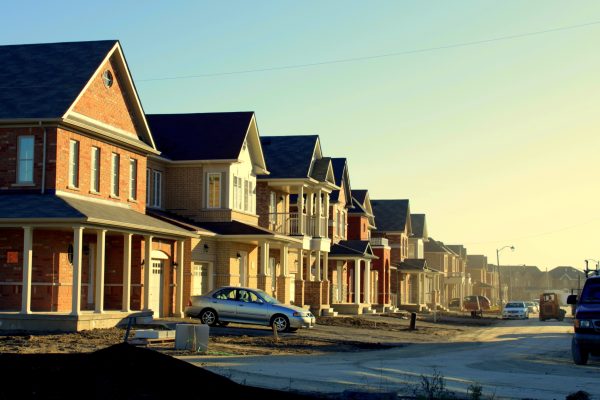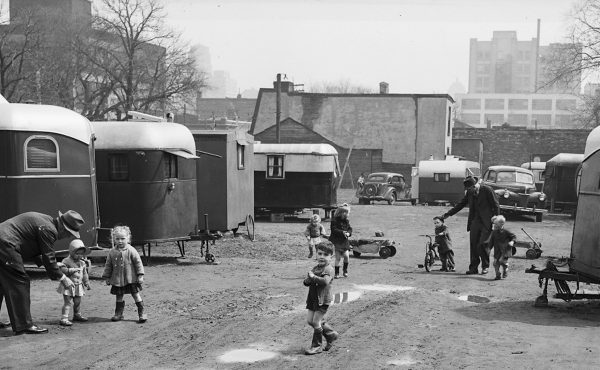How many bills does it take to build the homes Ontario says it needs? The recently re-elected Doug Ford government would have you believe it takes several, despite missing its own housing targets for the past three years and counting.
The Ford government last week introduced Bill 17, titled the: Protecting Ontario by Building Faster and Stronger Act. While certain aspects of the proposed legislation would contribute to construction efficiency, that efficiency comes mostly through savings accrued in favour of developers. Such savings would come at the expense of Toronto’s sustainability goals and affordability, with the City of Toronto as the primary focus of this bill, once again.
Some of the proposed changes would lower the cost to build for developers, but such lower costs come at the cost of a complete gutting of municipal environmental protections and affordability for buyers.
Cuts to Environmental Protection and Affordability
Bill 17 aims to amend several laws, including the Planning Act, the Ministry of Infrastructure Act, and, critically, the City of Toronto Act and, the Municipal Act.
The bill’s stated purpose is to streamline the approvals process for new construction. To this end, it repeals crucial sections of the City of Toronto and Municipal acts, which both empower cities to protect their interest through action seen as desirable or necessary to the public.
The proposed amendments effectively remove municipal authority to impose requirements on developers while halting the city’s capacity to impose affordable housing or environmental protections under section 97.1 of the Municipal Act. Bill 17 would, in its current form, de-authorize many forms of municipal authority entirely.
Such limitations would see the end of initiatives such as the Toronto Green Standard (TGS) , a core tool in the city’s campaign to transition to net-zero emission status under the TransformTO Net Zero Strategy. Council originally approved the TGS in 2006 and this step code has been a catalyst in Toronto’s environmental action. Bill 17 in effect unravels the entire process.
Queen’s Park’s attack on environmental protection policy is no surprise. Earlier this year, developer coalitions challenged Toronto’s jurisdiction to impose the TGS, arguing that such impositions are best left voluntary and any mandatory changes should be limited to the Building Code in order to protect developer interest. Mere months later, the Ford government has codified this complaint into law, putting its loyalties on shameful display.
This is simply a case of the Ford government, once again, favouring developers in ways no one has asked for, with local mayors voicing rejection of a blanket removal of green development initiatives.
Repealing municipal authority through Bill 17 not only de-authorizes vital climate action policy, but will also hurt the city’s capacity to enforce rent controlled unit minimums or otherwise affordable housing requirements.
By limiting what cities can request from developers, Bill 17 could cap the number of affordable units required from a developer in certain residential developments. Again, calling the entire framing of this bill by the Ford government into question. How does a bill aimed at relieving a housing crisis, gut municipal efforts to enforce affordable housing?
A Return to Controversy
Having previously tried and failed to expand the scope of municipal zoning orders (MZOs), the Ford government is taking aim, once again, at expanding the controversial power. In December, 2024, the Auditor General shined a chilling light on the outrageously liberal use of MZOs by the Ford government, citing the 114 orders issued between 2019 and 2023 – a 17-fold increase from the preceding two decades. The most egregious example came in the use of the land-use zoning tool to rapidly privatize Ontario Place, despite explicit public opposition.
Functionally, an MZO is designed to be used in situations of extreme urgency. These decrees override local planning in order to advance developments without expert analysis, impact assessments, or public consultation per the Planning Act. If there is a conflict between MZOs and local regulations, the MZO takes precedent. Using MZOs in the manner the Ford administration has is wholly unprecedented.
Bill 17 would see the MZO powers, currently being abused by the Ministry of Municipal Affairs and Housing, extended to the Ministry of Infrastructure. What this extension of powers achieves is a slightly more streamlined abuse of an extremely powerful tool prior reserved only for issues of extreme urgency.
The extension of MZOs is made without any alterations to the incentives to build the type of housing missing from Ontario to solve the current crisis. In short, the proposed extension streamlines approvals process without solving the underlying problems in a meaningful way.
A Path Forward
What Ontarians need to demand from our government isn’t legislation that guts environmental protection and affordability simply to slightly lower the cost of building. A much more worthy approach would entail the facilitation of medium density housing and mixed-use developments while expanding the potential for communities to organically densify.
What Bill 17 accomplishes in lowering the cost of construction is useless if all it produces are more massive high rises and single-family enclaves.
Additionally, legislation should support and expand the province’s capacity to construct affordable, rent controlled, and attractive public housing. Such projects would create a network of residential buildings which anchor the market and keep housing costs from soaring all while contributing to Ontario’s rapidly dwindling supply of affordable units.
The Bottom Line
Urban development and complex challenges such as housing and planning require time, nuance and consideration. This is not the outlook the Ford government has taken with this legislation. Bill 17, rather, is the continuation of a frustrating pattern.
To presume that in a province with such geographic and demographic diversity, a singular Building Code can provide the one-size-fits-all guidance municipalities need is at best naïve and at worst foolish. Municipalities must retain their say and power in how developers build housing in the best interests of their residents.
The Tories’ latest effort contributes very little by way of lowering construction costs and does not do much to meaningfully move the needle on the housing crisis. What is does, however, is completely gut what little remains of our environmental protections while further chipping away at housing affordability.
Michel Nayrouz holds a master’s degree in environmental science and management and studies the intersection between environmental policy and urban sustainability.




